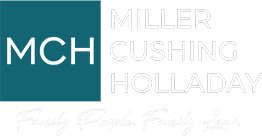In a move that surprised most of the nation on Monday, October 6, 2014, the United States Supreme Court decided not to hear any of the recent U.S. Court of Appeals cases regarding the constitutionality of same-sex marriage bans. This move surprised many in the legal community as both the plaintiff and defendants in those cases had taken the unusual step of joining together to ask for the Supreme Court to hear the issue. North Carolina was not one of the states with a pending appeal to the United States Supreme Court but the Court’s decision had a significant impact on North Carolina’s Amendment One, a state constitutional prohibition against same-sex marriage and any domestic union.
In July, 2014, the 4th Circuit Court of Appeals ruled that Virginia’s ban on same-sex marriage was unconstitutional. After the 4th Circuit ruled that Virginia’s same-sex marriage ban was unconstitutional, North Carolina Attorney General Roy Cooper declined to further oppose any challenge to North Carolina constitutional amendment outlawing same-sex marriages. North Carolina, like Virginia, is under the jurisdiction of the 4th Circuit Court of Appeals district (along with Maryland, South Carolina, and West Virginia). When the United States Supreme Court refused to hear the issue of same-sex marriage bans, the 4th Circuit Court of Appeals’ ruling that Virginia’s same-sex marriage ban was unconstitutional became effective. Because the 4th Circuit Court rendered Virginia’s same-sex marriage ban unconstitutional, the implication is that North Carolina’s same ban is also deemed unconstitutional, as a member of the 4th Circuit.
On October 10, 2014, United States District Court Judge Max Cogburn Jr. of Asheville ruled that the state’s ban on same-sex marriage was unconstitutional as it denied marriage rights to all North Carolinians. Local county Register of Deeds offices all across North Carolina began issuing marriage licenses to same-sex couples on October 13, 2014.
As is often the case with constitutional challenges, the issue is not without further appeal. On October 14, 2014, United States District Court Judge William Osteen of Greensboro also affirmed that North Carolina’s same-sex marriage ban was unconstitutional, but he also preserved the right to appeal on the limited grounds that Virginia’s state ban on same-sex marriage is distinguished from North Carolina’s ban. Judge Osteen ordered that arguments must be submitted within 10 days. Advocates of same-sex marriage will likely argue that the 4th Circuit Court of Appeals’ decision that Virginia’s same-sex ban is unconstitutional should also binding on North Carolina, and it is expected that advocates for North Carolina’s Amendment One will seek to contrast North Carolina’s law from Virginia’s to show that the 4th Circuit Court’s Virginia decision should not be binding. This appeal could go all the way to the United States Supreme Court.
Read more here:http://www.charlotteobserver.com/2014/10/14/5242155/republicans-allowed-to-appeal.html#storylink=cpy
During the appeal, same-sex marriage licenses will continue to be issued in North Carolina. If the Court ultimately decides that North Carolina’s ban is not distinguished from Virginia’s, the long-argued issue same sex marriage in North Carolina will be resolved.

